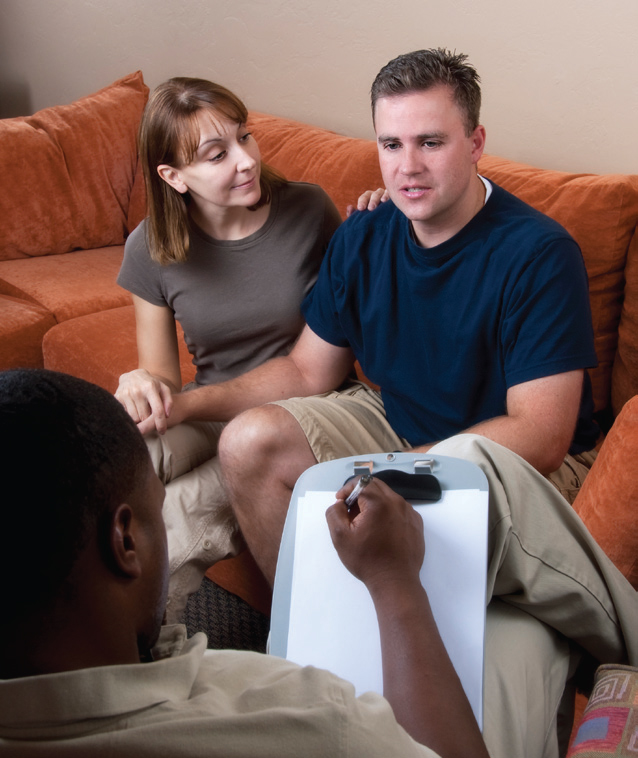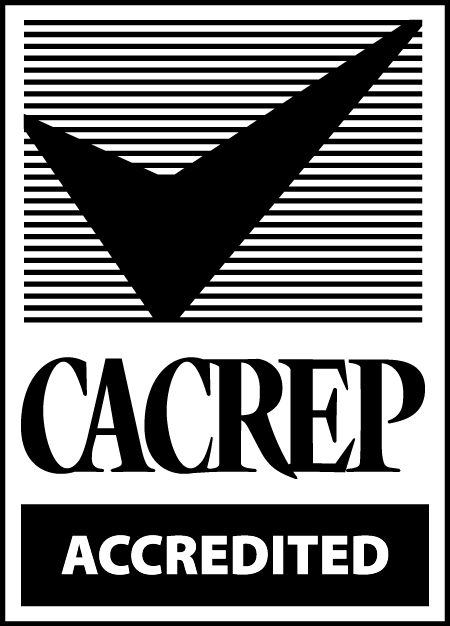More About Our Counseling Education Programs
 By choosing one of our CACREP Accredited Counselor Education Programs, Clinical Mental Health Counseling or School Counseling, you will be embarking on one of the most exciting experiences of your life! During your 60-credit program, you will no doubt experience moments of inspiration, frustration, excitement, confusion, and moments of self-reflection. You will find your classes and activities to be rewarding, challenging, encouraging, demanding and so interesting…and all possibly simultaneously! You will meet new friends and future colleagues as you prepare for such a rewarding career.
By choosing one of our CACREP Accredited Counselor Education Programs, Clinical Mental Health Counseling or School Counseling, you will be embarking on one of the most exciting experiences of your life! During your 60-credit program, you will no doubt experience moments of inspiration, frustration, excitement, confusion, and moments of self-reflection. You will find your classes and activities to be rewarding, challenging, encouraging, demanding and so interesting…and all possibly simultaneously! You will meet new friends and future colleagues as you prepare for such a rewarding career.
As a faculty, we are here to help you reach your dreams. We are committed to guide you so as to acquire the skills, values, attitudes and knowledge base that a practicing counselor requires. Please feel free to visit with any one of us to seek the resources you need to meet your goals. We hope you will take maximum advantage of the resources and learning experiences that our counselor education program has to offer.
Thank you for choosing the counseling faculty and program at Andrews University!
Official Counselor Education Report Documents
Programs Mission Statement
The mission of the Clinical Mental Health Counseling and School Counseling program is to prepare professional counselors who are ethical, creative leaders, lifelong learners, and self-reflective practitioners prepared to work in a multicultural, global community. To prepare professionals who excel as community leaders and advocates, committed to the bio-psycho-social-spiritual development of all persons. To promote wellness and counseling, consultation, and preventive services to individuals, families, groups, and communities in clinical mental health and K-12 settings. These carefully structured training programs prepare students for success, responsible citizenship, and lifelong learning in the field of clinical mental health counseling and school counseling.
Importance of CACREP Accreditation
-
Demonstrates an ongoing commitment to providing quality instruction and clinical experiences for students
- Streamlines the licensure process for Licensed Professional Counselors (LPC)
- Most states' LPC laws (including Michigan) define required coursework and qualifying clinical experience by the CACREP standards - Graduating students qualify to take the National Certified Counselor Exam, used by most states for LPC licensure
- Meets the application preferences of doctoral programs in counseling and counselor education
Counselor Education Objectives for Clinical Mental Health Counseling and School Counseling Programs
- Professional Counseling Identity – Students develop understanding of the history of professional counseling, knowledge of the philosophical foundations of the profession, knowledge of the roles and functions of counselors, professional pride/professional engagement, and knowledge and understanding of professional ethics.
- Ethical Practice – Students commit to and follow professional ethics consistent with the American Counseling Association ethical guidelines. They seek supervision/consultation to resolve ethical dilemmas and take personal responsibility in the event an ethical error is committed. Students also develop a strong awareness of their own values and worldviews, recognize their own competencies and limitations, maintain openness to supervision, and recognize/acknowledge/remediate personal issues that may impact client care.
- Multicultural Competence – Students develop awareness of power, privilege, and difference and their own cultural attitudes, beliefs, and effects of social location, and learn strategies for working with diverse populations, gender, sexual orientation, ethnic and other non-dominant groups. Students develop an ability to recognize the injustices that affect physical, academic, career, economic, and mental wellbeing of individuals and learn skill sets to act to alleviate such injustices in the society. Students develop the ability to be empowering agents and advocates in service as change agents on the systemic level to better serve underrepresented, marginalized, and oppressed individuals and groups.
- Human Growth and Development- Students learn to interpret and apply core theory and research of the nature and needs of individuals at all developmental levels and in multicultural contexts.
- Career Development- Students develop understanding on how to apply core theory and research of career development, the psychology of work, and related factors. Students learn which assessment instruments and techniques are relevant to career planning and decision making.
- Helping Relationships – Students develop therapeutic communications skills, emphasize the client-counselor relationship, and facilitate and manage the counseling process with individuals and groups. Students develop an understanding of a range of counseling theories consistent with a developmental perspective. Students develop treatment plans and interventions consistent with their own theoretical orientation, a critical evaluation of the literature, client mental health needs and goals in counseling, diagnosis, and best practices in the profession.
- Group Work- Students develop an understanding of the theoretical and experiential foundations of group purpose, development, and dynamics and understand how to apply group counseling methods and skills in group settings.
- Assessment- Students understand principles of testing and measurement and learn how to apply both individual and group methods of assessment and evaluation.
- Research and Program Evaluation- Students understand methods and roles of research, statistical analysis, needs assessment and program evaluation.

